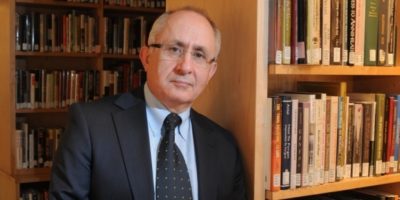The following is the speech of Prof. Taner Akçam, on April 21, at the State House in Connecticut.
Every year, I ask myself again and again the same question: Why and how should we commemorate past atrocities, such as genocide? This question is actually part of two larger questions: First, why should we remember past atrocities; in other words, why confront history? Isn’t it better let bygones be bygones? And secondly what is denialism and how do we fight it?
About the first question: There are several reasons why we need to remember past atrocities and acknowledge historic wrong doings:
The first reason is the restoration of humanity. First, we MUST remember the victims. We have to pay our respects to the dead and re-humanize them. Dehumanization is one of the most prevalent characteristics of mass atrocities. It precedes all mass atrocities known to man, because the only way you can achieve the kind of mass psychology required to motivate one group to annihilate another is to first make the “other” inhuman. This is the way to overcome the normal human revulsion against murder. Nazis categorized (defined) Jews as “bacteria or microbe/germs”; in Rwanda the Tutsis called the Hutus “cockroaches.” Ottoman Turkish rulers considered Armenians to be a “tumor” in the Turkish body that should be removed, this term was used very often by the leaders of Teshkilati Mahsusa. By depriving the victim group of its humanity, perpetrators pave the way for mass-atrocities to occur.
Commemoration is, if nothing else, an act of protest against this repulsive phenomenon. Re-humanizing the victims by honoring them and restoring their dignity is one of the most important steps to denounce the perpetrator. Without recognition, successor generations cannot properly mourn and heal. Mourning and healing are necessary for closure and can only come after the truth is acknowledged. If we fail to acknowledge it, we fall into a trap that continues to support the perpetrators and their ultimate goals. After decades of denials, Armenians need to heal and to understand that the justice they seek will prevail.
The second reason is for remembrance. By remembering, we create the foundations for co-existence. When you have two or more groups that have experienced a painful past filled with violent acts, they must engage in mutual dialogue over that history if there is any hope of living together in the future. Without this kind of ongoing and constructive dialogue, these groups will continue to view each other with suspicion and will remain victims of their tragic past.








